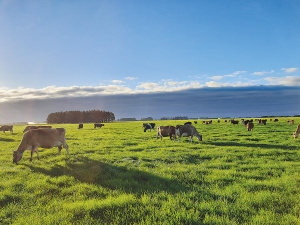So, it is unlikely councils around the country were unaware the new Government intends to reform the Resource Management Act (RMA), and that those reforms would impact district plans. These reforms were clearly telegraphed.
And yet it's clear that some councils - particularly those with activist staff members - are trying to implement district plans under the previous Labour government's rules before the new coalition Government can change the RMA.
One example is the Waitaki District Council (WDC), which is trying to push through its Waitaki District Draft District Plan to notified stage.
Similarly, concerns have also been raised about the actions of Otago Regional Council (ORC) ploughing ahead with a controversial water plan.
Some are taking steps to rein in councils that are trying, almost in defiance of the democratic process, to push through district plans and other planning processes despite the pending and clearly signalled reforms.
North Otago farmers Jane Smith and Simon Williamson, who have written to RMA Reform Minister Chris Bishop and Local Government Minister Simeon Brown, fear the WDC's new draft district plan identifies 44,000ha to be reclassified in ways that will restrict farmers' ability to farm it. Smith and Williamson claim this will affect 1638 private property owners, involving 5979 parcels in the Waitaki District. "Many of whom are unaware of these classifications on their freehold land."
The fear here is a downstream effect on landowners likely to reduce their lending ability and cause pressure from banks to repay debt due to the subsequent loss of equity.
This is just one example.
The Government now needs to send a clear signal to councils to cool their jets. Notwithstanding the democratic principle here, on a practical note, there is no point wasting ratepayers' money rushing to implement plans that may change substantially over coming months.



















